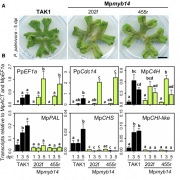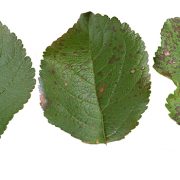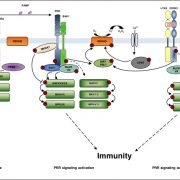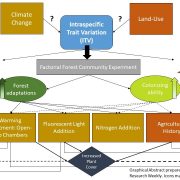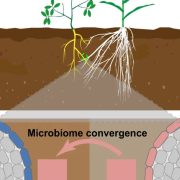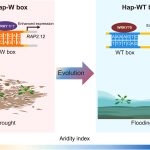Modern agriculture practices negatively affect functions of beneficial plant microbes (Nature Ecol. Evol.)
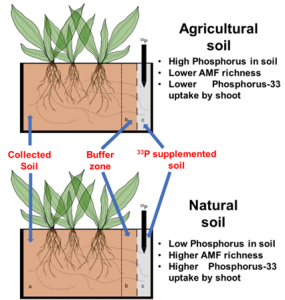 Are modern agricultural practices good for the environment? Or at least for the crops? If we look at a small field at a particular time point, it may seem they are good. But looking at a broader picture gives a different notion. In a recent study, Edlinger et al. collected 210 soil samples from traditional cropland (agricultural soil, AS), and nearby natural grassland (natural soil, NS) from five European countries. The authors analyzed soil and also looked for phosphorus (33P) uptake by the same plant species on different soils. They observed that although on average P level in NS is less than that of AS (likely due to P supplementation in AS previously), plants that grow in NS recover more 33P from a distal 33P source. This is because of higher species richness, especially arbuscular mycorrhizal fungi (AMF) richness, in NS. 33P recovery is directly proportional to AMF richness, both of which decrease with an increasing number of fungicide application. Overall, the study shows that “the capacity of AMF to support plant P nutrition is impaired in croplands compared with non-cropped grasslands, particularly by the use of fungicides“. Summary by Kamal Kumar Malukani, @KamalMalukani. Nature Ecol. Evol. 10.1038/s41559-022-01799-8.
Are modern agricultural practices good for the environment? Or at least for the crops? If we look at a small field at a particular time point, it may seem they are good. But looking at a broader picture gives a different notion. In a recent study, Edlinger et al. collected 210 soil samples from traditional cropland (agricultural soil, AS), and nearby natural grassland (natural soil, NS) from five European countries. The authors analyzed soil and also looked for phosphorus (33P) uptake by the same plant species on different soils. They observed that although on average P level in NS is less than that of AS (likely due to P supplementation in AS previously), plants that grow in NS recover more 33P from a distal 33P source. This is because of higher species richness, especially arbuscular mycorrhizal fungi (AMF) richness, in NS. 33P recovery is directly proportional to AMF richness, both of which decrease with an increasing number of fungicide application. Overall, the study shows that “the capacity of AMF to support plant P nutrition is impaired in croplands compared with non-cropped grasslands, particularly by the use of fungicides“. Summary by Kamal Kumar Malukani, @KamalMalukani. Nature Ecol. Evol. 10.1038/s41559-022-01799-8.


